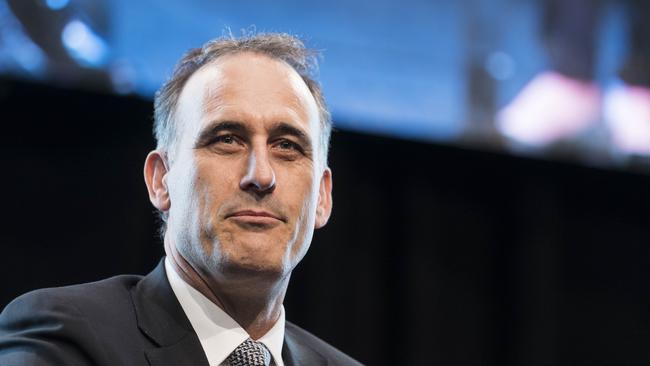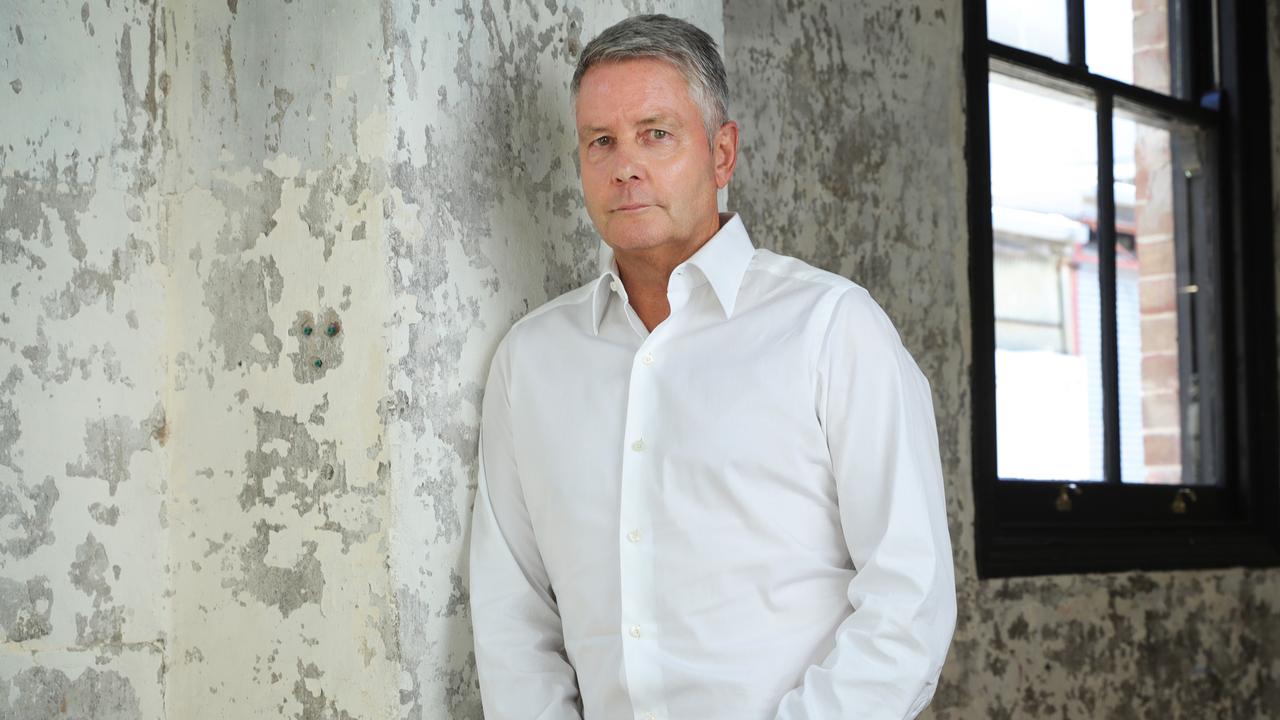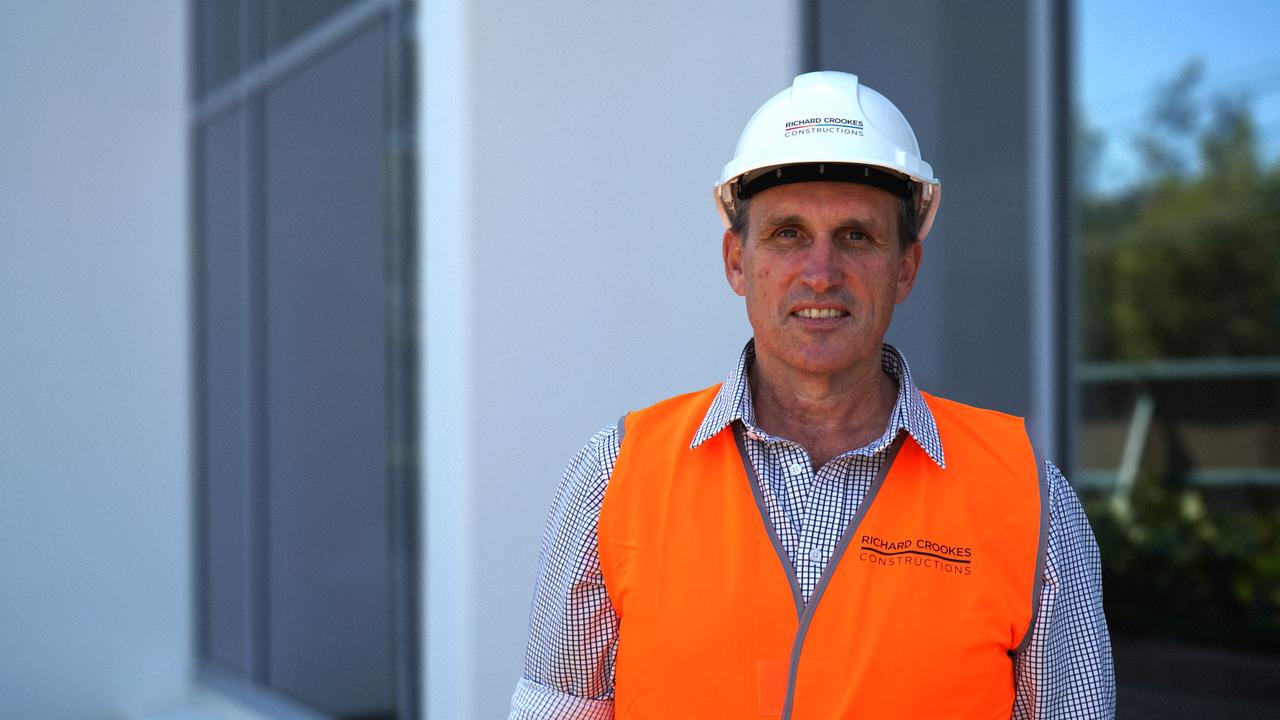Homebase ‘debacle’ a lesson for executives: Wesfarmers
Wesfarmers boss Rob Scott has pledged to learn from the disastrous decision to buy hardware chain Homebase.

A penitent Wesfarmers boss Rob Scott has pledged to learn from the disastrous decision to buy British hardware chain Homebase for $705 million, only to walk away from it after selling it for as little as £1, but will encourage his executives to take risks and be bold around acquisition opportunities.
Unveiled two years ago as the biggest overseas push in Wesfarmers’ 102 years of corporate history, the Perth-based conglomerate was riding high when on the same day that Woolworths raised the white flag over its own hardware disaster — the collapse of the Masters chain — it announced the purchase of Homebase.
But its dreams were quickly dashed, fuelled by a series of “own goals” like sacking key Homebase management, stripping out concession stores that its British shoppers loved, an everyday low price model that just didn’t catch on and even the famous sausage sizzle, which proved a fizzle.
Then there was the shock Brexit vote result only a few months after the Homebase deal that crunched the British economy, with retail especially hurt, and even the weather went against Wesfarmers when a cold snap this year kept shoppers indoors.
It all finally tipped Mr Scott’s hand and, after reviewing the loss-making Homebase chain and staring into a bottomless hole of capital the business needed to return to profit, he announced yesterday that Wesfarmers would divest its Homebase UK business to private equity firm Hilco Capital.
Wesfarmers said it would sell the hardware chain for a pittance compared with the $705m it paid for it in 2016, on top of the $1 billion in writedowns it also took on the business this year. It is believed the sale price was for a nominal £1.
The conglomerate said it would record a loss on the disposal of £200m ($354m) to £230m. The 24 Bunnings pilot stores in Britain, which had been showing some signs of good trading, will be converted back to Homebase, and if the deal is completed by June 30 as planned Mr Scott can start the new financial year free of the burden.
The CEO promised that his teams would learn the lessons of the Homebase debacle but not lose their appetite for risk.
“My message internally is let’s continue to be bold, but be diligent, because I still think there will be opportunities for Wesfarmers to deliver value to shareholders through sensible and well-thought-through and implemented investments.”
Some executives would feel the pinch of lost bonuses but not to the level where it dampened the company’s entrepreneurial zeal.
“Clearly there have been negative financial implications from this, and from a management point of view we are all shareholders and will feel the pain of that.
“There will be remuneration implications from the impairments and from the losses and we will ultimately disclose that to the market,’’ Mr Scott told analysts.
“And while there has to be accountability I don’t want people to feel afraid to actually pursue new opportunities and take risks.”
Bank of America Merrill Lynch analyst David Errington was scathing of the decision to buy Homebase in the first place.
“Where does the buck stop here and ultimately who is going to pay a price for losing $1.5bn? I mean one or two people might have exited the business but who pays, who doesn’t get paid a bonus this year for losing that amount of money?”
The CEO who struck the deal to buy Homebase, Richard Goyder, is no longer at Wesfarmers, and neither is the former boss of Bunnings, John Gillam.
“The board should have been able to detect that something wasn’t right here, and yet you are able to approve a business (acquisition) … that cost well over $1.5bn in just over two years,’’ Mr Errington said.
Bruce Smith, principal of Alphinity Investment Management, said it could be unfair to penalise Mr Scott. “It’s one of these things, it’s easy to feel vindictive after the event but when you look at the key architects of that acquisition, they have all sailed off into the distance.
“There has to be some sort of accountability among management or the board, and hopefully the company is able to claw back some deferred remuneration or shares for what has been a debacle,” Mr Smith said.
He said it could be harder for Wesfarmers to justify future deals.
“It is going to be that much harder. There is really no way around that other than having a realistic assessment of how it went so wrong, to make it a learning experience rather than just an expensive experiment.
“The only proof will be when they do something else and it turns out to be a raging success — after all they’ve had more successes than they have had failures over time. But shareholders will remain very sceptical until that is proven again.’’



